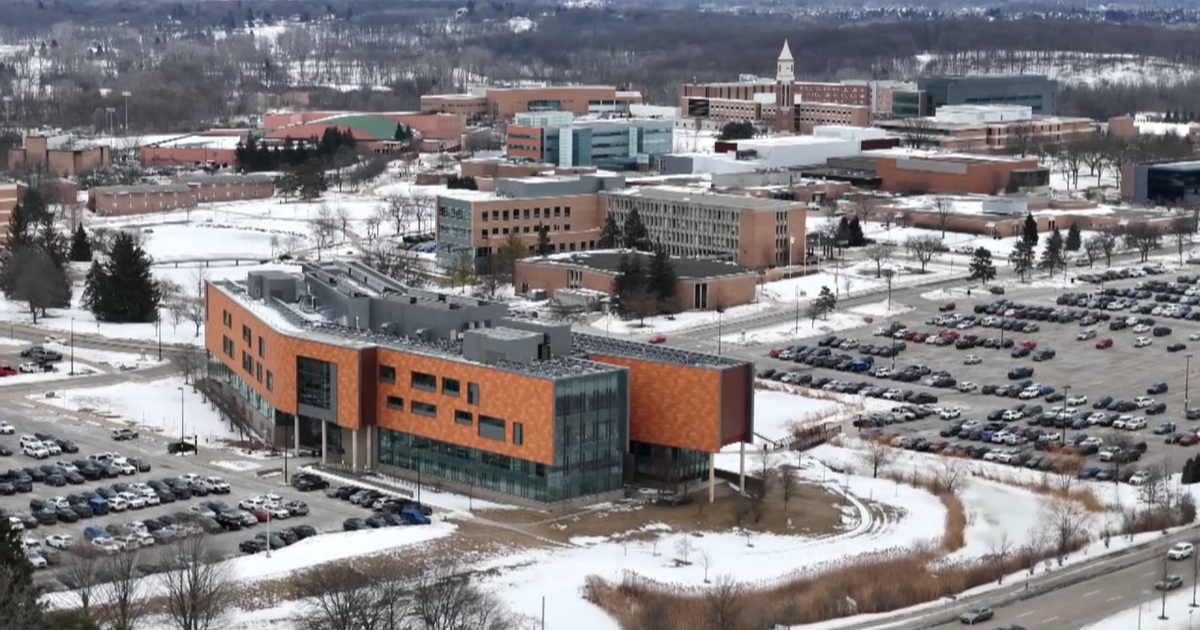Help wanted: Coronavirus and job prospects for U.S. workers
The U.S. economy has come to a screeching halt, and business by business, person by person, the damage is piling up.
"I mean, you go from being busy to having nothing really," said Elmer Mejicanos, who has been a bartender in San Francisco for ten years. And the new restaurant he planned to open? It's on hold.
"The one thing that kind of keeps me up at night which is, like, how do you provide for your family?" he said.
Like Mejicanos, a lot of people across the country are losing sleep.
We've just learned that new weekly jobless claims totaled 3.28 million in the most recent week measured.
CBS News business analyst Jill Schlesinger asked Morgan Stanley's chief U.S. economist Ellen Zentner to put that in historical context: "Millions of jobless claims in just one week, that is about five times the amount that we received in any of the peak weeks around the financial crisis [of 2008], or any of the deeper downturns, say, in the 1980s. It's an extraordinary number."
"And a sobering one at that," said Schlesinger.
"Yes."
- Unprecedented jobless claims "could persist for a while," expert says ("CBS This Morning")
And Zentner had more sobering news: She and her associates at Morgan Stanley believe that economic output in the second quarter is going to drop by 30% from a year ago.
"Yeah, so those are really grim numbers," said Zentner. "But it's the reality that, you know, this is unlike any other economic downturn that we've gone into. Companies are leading us to believe that anywhere from 75 to 90% of economic activity has been cut in important areas. You have a car dealership in New Jersey saying, 'We used to sell 45 cars a day. Now we're selling one car a day.'"
Facing an unprecedented crisis, the government is taking unprecedented measures. There's the enormous $2 trillion federal lifeline to businesses and families; and the Federal Reserve is feverishly rolling out plans to keep money flowing throughout the financial system.
It might feel like a nightmare repeat of the recession that began in 2008. But this time is actually different.
Zentner said, "It's a very sharp drop into recession, but we don't expect this recession to be as long-lived as prior recessions, because this is dictated by the evolution of the virus. And our biotechnology analysts believe that the peak in cases will come somewhere in late April, and thereafter, as some of these social distancing measures recede, we can start to resume what a normal pace of activity looks like."
But even as job losses multiply, some businesses are already looking to hire tens of thousands of people.
Like Dollar General, which has more than 16,000 stores across the country. "We continue to see a heightened demand for the essential products that we sell," said Chrystal Ghassemi, the spokesperson for Dollar General. "We're planning to add up to 50,000 new employees by the end of April, to help support some of our stores, our distribution center, and our private fleet operations."
Ghassemi said that, although some of the new positions will be temporary to begin with, "We have a pretty strong track record of job growth, and we do see some long-term career opportunities for some of these folks who may be coming on during this time."
And as Americans cocoon in their homes, virtual businesses are finding new customers, like Outschool, which offers online classes to elementary-through-high-school-age kids.
"Since launching in 2017, we have 80,000 students attend more than 300,000 live class hours," said CEO Amir Nathoo. "So, we were growing very nicely and already had a huge community. But in just in the past week, since we saw the wave of mass school closures, we've had another 20,000 students joining classes."
Schlesinger asked, "With this increased demand, these 20,000 extra people who are coming on to your platform, you're seeking new teachers to help you out. Can you tell us a little bit about that?"
"Yes, exactly. You know, our classes are selling out, and we are seeking to onboard another 5,000 in the next two weeks. We want to find teachers who maybe have down downtime outside of their school teaching, or former teachers, and people who may be yoga teachers, or music and dance instructors."
Economics has been called the "dismal science." And times right now are indeed dismal. But Ellen Zentner is not all doom-and-gloom.
"It's still gonna be a long, slow slog back to the type of labor market we had prior to the coronavirus outbreak," she said. "But we will get there. We will get there over time."
For more info:
Story produced by Alan Golds. Editor: Lauren Barnello.



